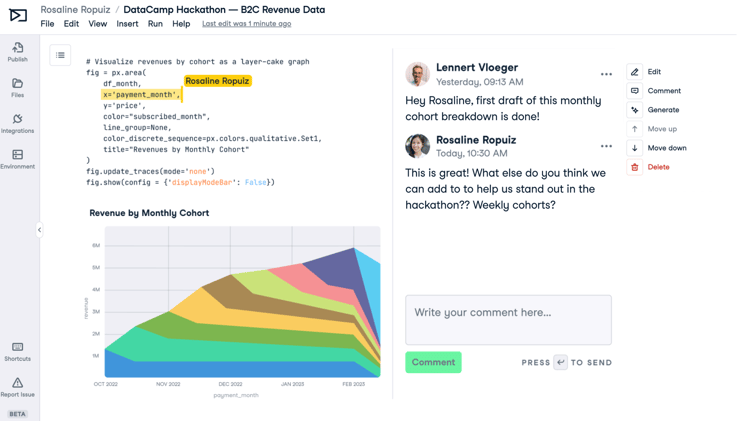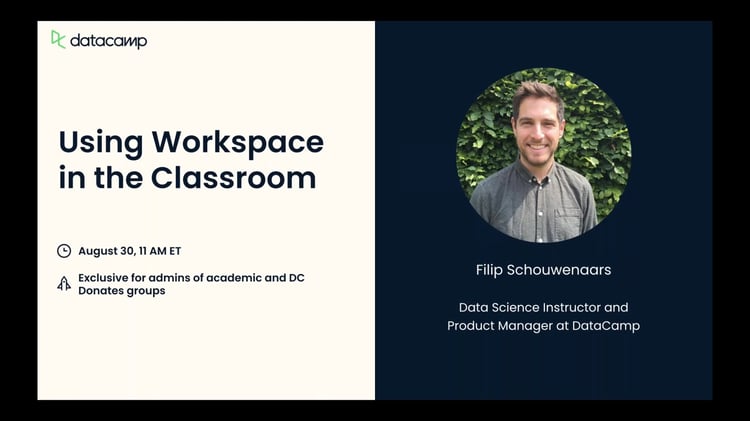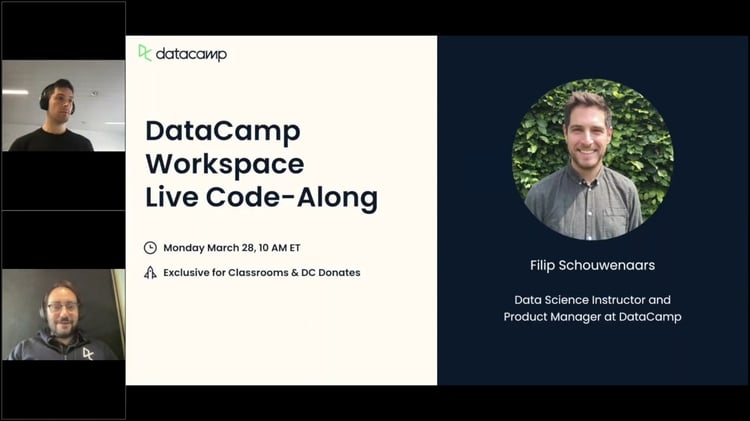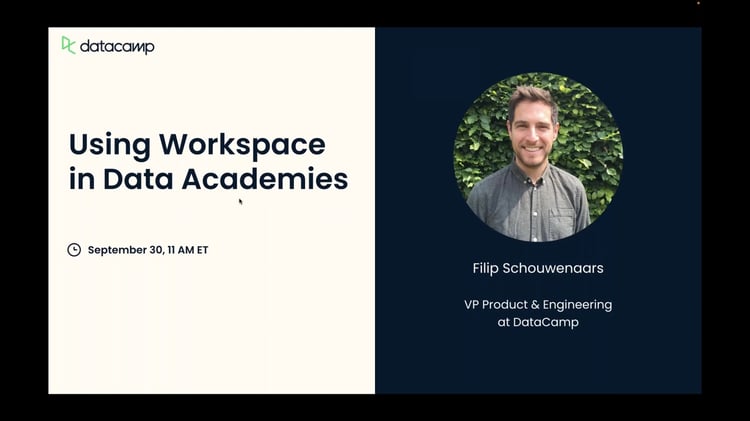Datalab eliminates the need to debug all of your students' setups, empowering teachers to teach data skills effectively in the classroom.
After introducing a new topic, hands-on coding is an invaluable technique to reinforce understanding and solidify knowledge. There is no substitute for running and experimenting with new functions and programming concepts first-hand.
However, the conventional approach of having each participant follow along on their own computer can be overwhelming: they need the correct version of R (or Python) installed, as well as the appropriate packages and versions. They also need a properly configured Integrated Development Environment (IDE).
Similarly, open-ended assignments are an excellent tool to ensure students can apply their newly acquired skills. But what about when you want pupils to collaborate? This can be cumbersome: some may use git while others might resort to a cloud solution like Dropbox or OneDrive. Yet others may fall back on emailing code files to each other. When it’s time for you to review, student submissions rarely run without errors due to differences in setup or missing dependencies.
Considering the pace of a semester, you might question whether these interactive teaching methods warrant such considerable time investment and hassle.
But there's good news! Recent advancements in cloud technology have given rise to several data collaboration platforms that bypass all configuration and collaboration headaches. In this article, we'll explore how DataLab can be a game-changer for you. This modern data science notebook from DataCamp will get you and your students up and running in an identical Python or R environment in under 5 seconds. And the best part? It's free!
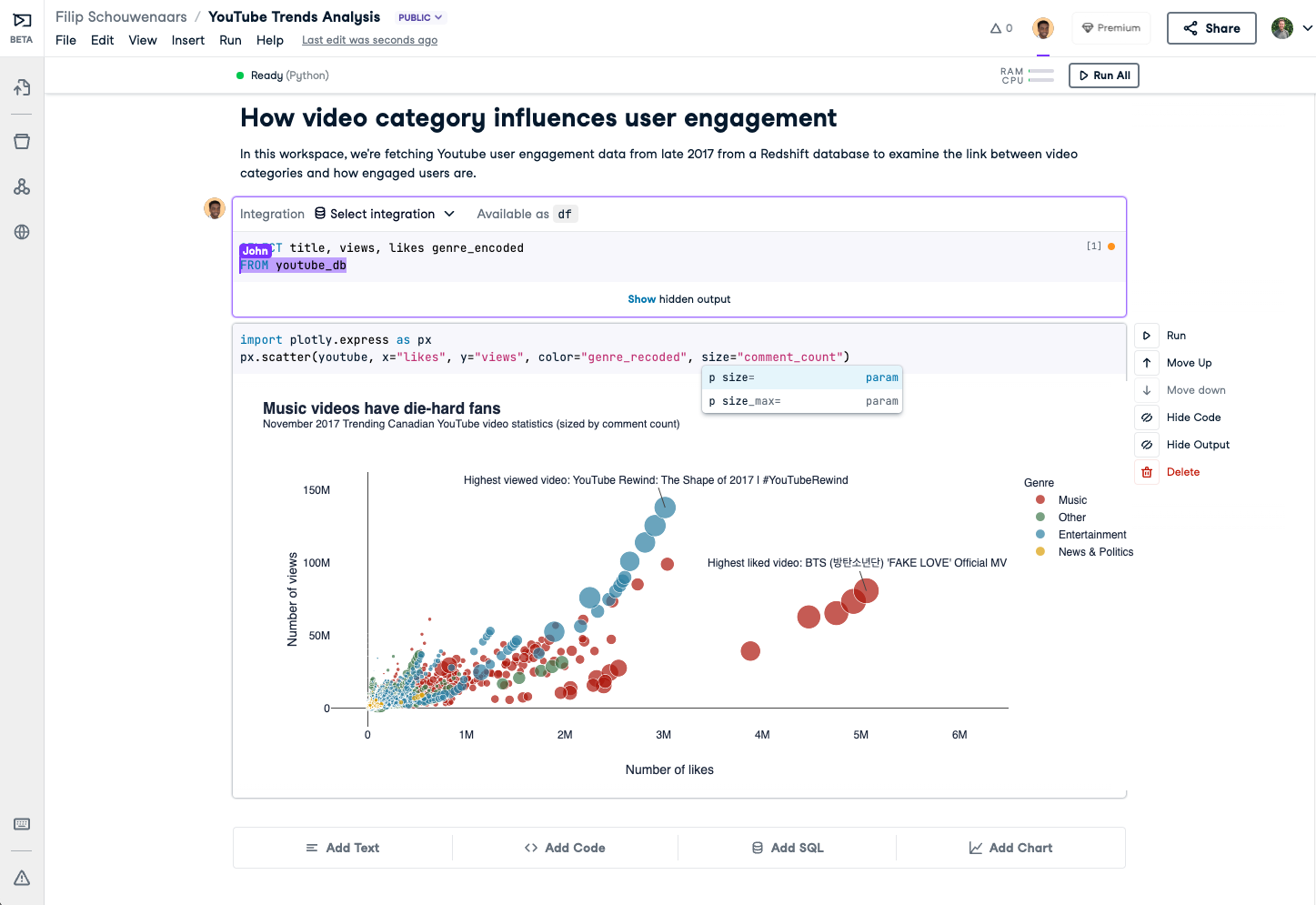
The DataLab editor
Why use DataLab?
It’s free
Teachers and professors that teach data science can apply for a free DataCamp Classroom Group. All members of a Classroom Group will have free access to the entire DataCamp course library and a DataLab Premium license. This enables them to create unlimited private data projects (called workbooks) that they can easily share with other students and have access to 1-year version history.
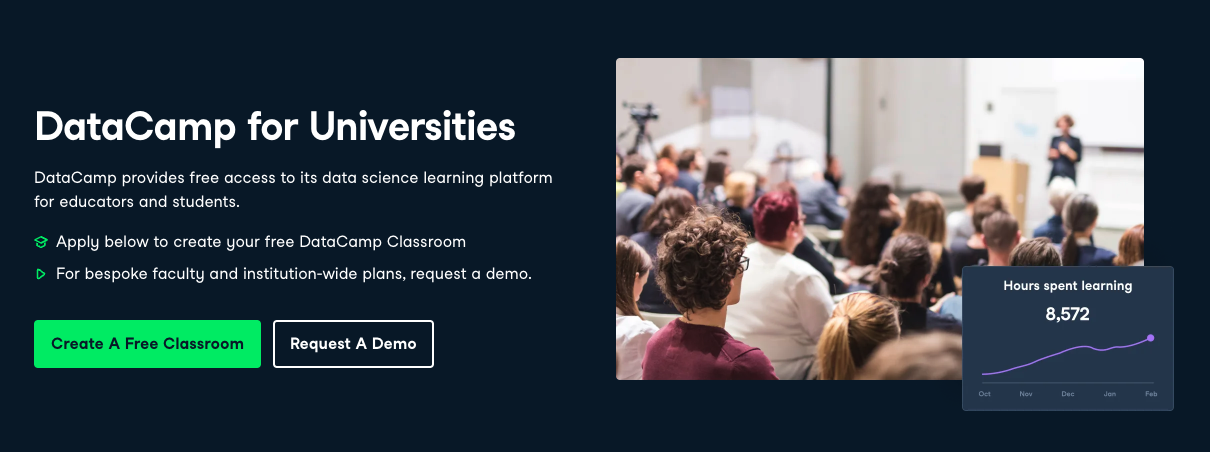
Apply for a free DataCamp Classroom group to get free DataLab Premium access.
Zero configuration, easy sharing
Every data project in DataLab runs in a fully managed, preconfigured notebook environment that boots in seconds. You can create Python and R workbooks, with all common data science packages pre-installed. If you want to install more packages or other versions, you can still do that.
Both Python and R workbooks also feature a “SQL Cell”, enabling your students to query databases and data warehouses with SQL and continue their analysis in Python or R afterward.
Google Docs style real-time collaboration is built-in; collaborating on a data project is a matter of sharing a link. Think of DataLab as a cloud-based version of JupyterLab on steroids, optimized for ease-of-use, easy data access, and collaboration.
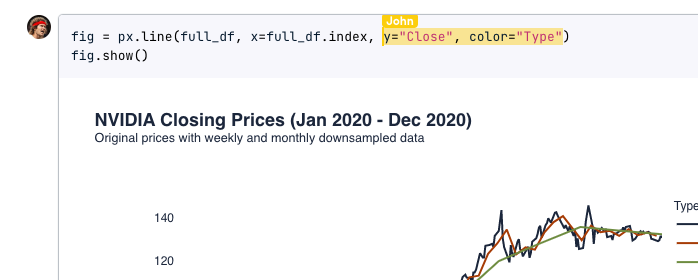
DataLab comes configured with all common packages and built-in collaboration
Students can code along effortlessly
Having your students follow along while you teach is empowering: they can experiment with the very concepts you’re covering rather than having to wait until a break. With DataLab, this is easy:
- As a teacher, create a new workbook with all the example datasets, sample text, and sample code you want your students to start from.
- Next, create a simple copy link that you share with your students.
- If your students click on this link, a new workbook will be created with all the data and notebook contents in the original workbook, ready for them to play around in without affecting the sample workbook.
To experience what this is like, visit this sample workbook and click its copy link (which will create a new workbook). Your students are literally up and running in less than 5 seconds, with the data files and boilerplate code ready to go.
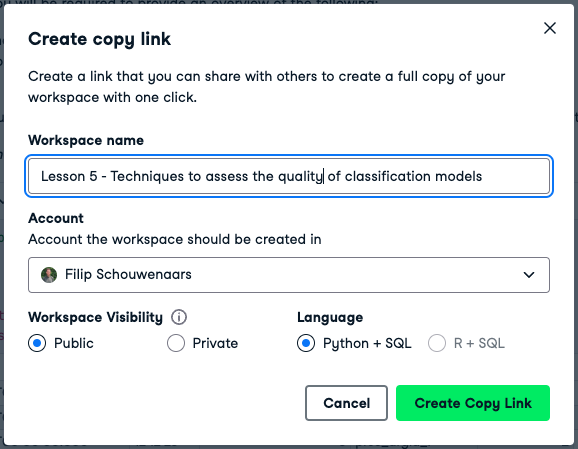
Create copy link and share it with your students
Easy assignments
The copy link functionality also makes it easy to hand out assignments. Describe the assignment in a workbook and share out the copy link. Students who click the copy link create their own workbook from it to complete their assignment.
Students can even work together: in a group of three students, one student can click the copy link and then invite the other two students as editors so they can collaborate. All changes are saved automatically, and they can review and restore past versions through version history. Upon completing the assignments, they can share the workbook with you, the teacher, so you can review their work. The execution environment is the same for both of you: if it ran without errors for them, it will run without errors for you.
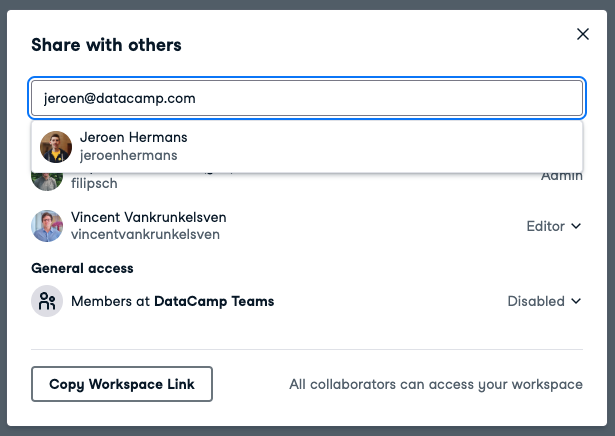
Group collaborators can easily share a workbook and collaborate in it
You’re in control
As the group admin, you can configure DataLab.
- DataLab comes with a powerful AI assistant that can generate data science code and fix and explain errors. However, you are free to disable this.
- You can also control the default sharing settings for newly created workbooks inside a group (e.g., making them private to the creator by default).
- You can specify whether or not your students can share workbooks with others or the entire group.
For a full overview of group settings, check our article on managing group settings.
Finally, we can provide you with insights into how your students are engaging with DataLab: how many workbooks they created, how much time they’re spending on their assignments, who collaborated, etc.
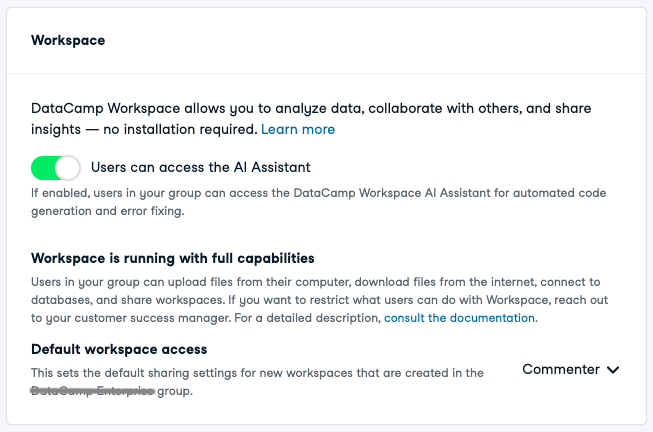
Group admins can control several group settings
DataLab in Action
Other professors across the globe have switched to DataLab to power their teaching.
Richard Herron is an Associate Teaching Professor in the Finance Group at Northeastern University’s D’Amore-McKim School of Business. He distributes his course content through DataLab so students can easily follow along. His students also use it for group work:
“I love DataLab! I have tried a few other cloud JupyterLab solutions, and DataLab is by far the easiest for my students and me. DataLab is a turnkey solution, like "Google Docs for JupyterLab." Because it is like Google Docs, it works how my students expect. For example, students can share files and collaborate in the same notebook. I love seeing students "pair programming" over Zoom in the same notebook. The next time I teach my financial data analytics course, I may switch from using my local machine to doing it all in DataLab. I recommend every data analytics instructor check out DataCamp DataLab!”
Mauricio Uriona is an Associate Professor at the Federal University of Santa Catarina Department of Industrial and Systems Engineering in Florianopolis, Brazil. He was already leveraging the DataCamp for Classrooms program to get his students access to the course library, but he now also uses DataLab in several of his classes. The reduced friction for beginners has been a game-changer for him.
Emile Jaspar teaches Artificial Intelligence & Data Science at the Avans University of Applied Sciences in the Netherlands. He played a big role in developing the data science module for the Business IT management degree. He used DataLab for sharing course notes and distributing assignments. The ability to control default workbook settings for newly created workbooks in his Avans Classroom group was a very useful feature to ensure students worked individually before collaborating.
Conclusion
In today’s technology landscape, having students work on data science exercises or assignments on their local computers is unnecessarily complex and time consuming. DataLab skips all of the configuration and sharing hassle, allowing your students to focus on what matters: practicing their newly acquired data skills.
Try out DataLab for free, read step-by-step instructions for how you can use DataLab for Education use cases, or create your free DataCamp Classroom today.
